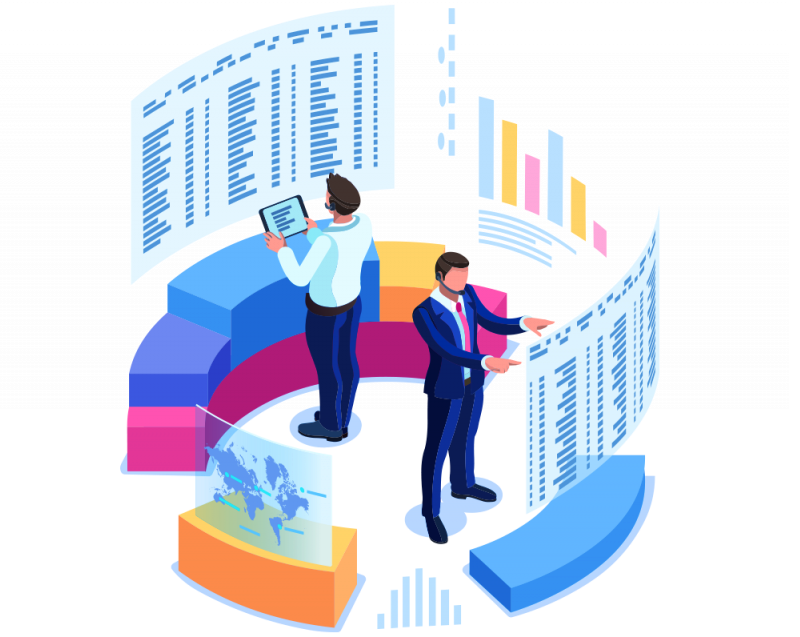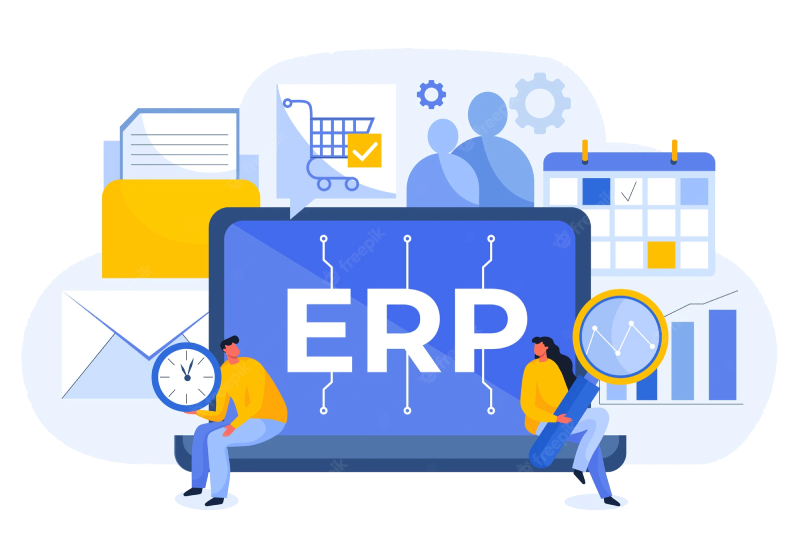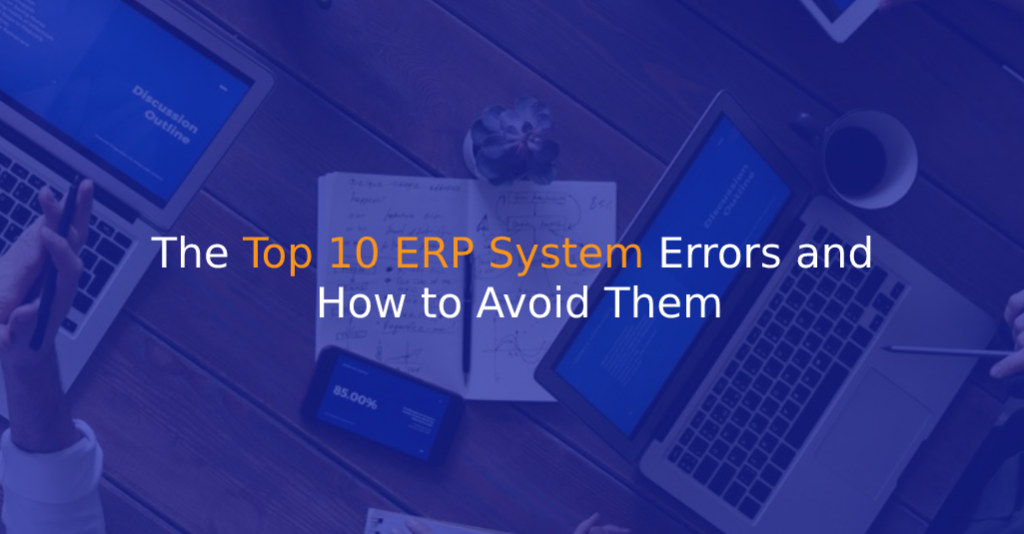ERP Benefits ERP (Enterprise Resource Planning) software offers several benefits to organizations of all sizes and sorts. The successful installation of an ERP system may result in an efficient workflow and cost savings throughout the whole organization. However, organizations must plan ahead of time for their purchase and implementation methods; otherwise, the results might be costly and disappointing.
Whereas the success of an ERP installation can help your firm streamline its processes and save money, a badly planned and performed ERP rollout can cost organizations significantly in terms of productivity loss and delays.
Ten Most Often Stated ERP Faults and Solutions
1. Failure to consider users (in all areas) while making decisions
Typically, just the approvals of C-level executives are necessary when selecting whether to deploy ERP software.
It is critical recruiting workers not only from IT as well as from throughout the firm, including operations, finance, manufacturing, warehouse, and manufacturing, to assure that everyone is involved in discovering and executing the best solution in the shortest amount of time possible.
2. Failure to Compare Alternatives: On-Premises Vs Cloud-Based ERP Software
Before determining whether an on-premises or cloud-based ERP system is the best match for their needs, businesses should evaluate several variables.
Customized ERP systems, on the other hand, might be tough to maintain up to date, leaving your company with out-of-current technology. With an ERP adapted to your business, the system you select will provide all of the functionality you demand and more, eliminating the need for expensive customizations.

Cloud-based ERP software, on the other hand, allows businesses to save money on expensive upfront expenses and in-house equipment that would otherwise necessitate a high-priced specialized IT crew. Smaller businesses can profit from subscription-based payments, while the majority can gain from SaaS that serves to remote workforce’s needs.
3. Failure to Include an Industry-Specific Solution
When deciding on the best ERP solution, you will have to make a critical decision. You can go with an undefined ERP system meant to be a “one size fits all” solution, or you might go for industry-specific ERP software.
While generic software is less expensive at the start, industry-specific software is regarded as an investment in your company’s future.
4. Lack of an Active Load Testing Environment
The most effective technique to evaluate if your system is up-to-date and working as it should is to test it. However, you won’t be able to identify precise outcomes from a tiny sample of test consumers.
Making the effort to do the appropriate load testing will not only speed up the implementation but will also help put your firm up for success.

5. There Is No Maintenance Plan in Place
The adoption of an ERP solution might be a lengthy process. However, the complete procedure is not disclosed at the outset. Businesses should immediately develop an ongoing maintenance strategy after successfully implementing the software.
Employees will be aware of what they must do to maintain and enhance the ERP software regularly to keep it running smoothly and up to date.
An obsolete ERP solution can expose firms to security risks and weaknesses in their procedures. Choosing a maintenance plan and allocating responsibilities ensures that your ERP software is running at peak performance and is up to date.
6. Never Considered Change Management
Based on an annual ERP research, firms that have completed ERP systems find that the technical components of ERP were easier than managing staff changes.
According to the survey, the most difficult component of managing change is removing obstacles that impede employees from taking benefit of the new ERP software. If staff are not at ease with the new system or are content with the old software, the organization will have a reduced chance of realizing the benefits that ERP may give.
7. Overestimation of Accurate Data
What goes in must come out. It is critical to ensure that your most recent ERP software is set up with exact and clear data. This decreases the possibility of errors while also ensuring that the proper processes and requirements are followed.
ERP systems may be a terrific tool for helping you develop your business in ways you’ve never seen before; yet, in the end, ERP software can only operate properly if the correct data is supplied to it.
8. Insufficient Investment
Companies are looking for methods to save money, but an ERP program is not one of them. When teams acquire only sections of an ERP system rather than the complete suite, the ERP fails to serve its goal and is unable to realize its full potential.
Teams that acquire only a portion of an ERP system typically use their own IT staff to create unique setups. The problem is that because your ERP system was custom-built for your organization, your team can no longer depend on the ERP software provider’s resources or service team.
9. Poor Planning
The significance of preparing for a good ERP deployment cannot be overstated. The implementation of an ERP system will influence the whole organization, from procurement to engineering and operations.
As a result, it is critical to have a well-organized strategy in place to handle such a large project. Many businesses do not prepare ahead of time, which leads to uncertainty later on, which either delays or halts the ERP software project entirely.

10. The Improper Use of ERP Software
There is a tendency to mishandle and abuse the whole ERP system in the lack of training. When creating reports tailored to your needs or analyzing certain metrics, it is critical to utilize correct and precise data to obtain precise findings and an accurate image.
Changing a manufacturing ERP “instance” for retail data and computations is a typical mistake. Because the two departments are different, inaccurate figures may arise.
You may take a few actions to limit the risk of mistakes.
- Incorporate funds for training into the ERP software team.
- Invest in effective ERP installation.
- Assign oversight responsibilities to a specific role (s)
Summing Up
Once correctly deployed and maintained, Enterprise Resource Planning Software may aid with increased efficiency, more flexibility, and resource optimization. It is critical to continue learning to minimize mistakes and guarantee that the software is a success that will help the organization for many years.



